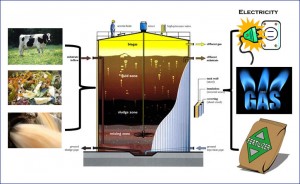 Two new waste disposal plants will use Yangon Myanmar's trash to generate electricity and natural gas for vehicles, with construction starting as early as November, Yangon City Development Committee says.
Two new waste disposal plants will use Yangon Myanmar's trash to generate electricity and natural gas for vehicles, with construction starting as early as November, Yangon City Development Committee says.
The plants are also needed to reduce the strain on the city’s waste dumps, which are causing environmental damage, said U Khin Win, deputy head of YCDC’s pollution and cleaning department.
“Our department is planning to change [the city’s] waste disposal system and has invited tenders for building plants. We have chosen 10 domestic and foreign companies [of which] two will be chosen [to build the plants],” he said.
The 10 companies have been told to submit their final proposals to YCDC by August 7.
Companies from South Korea, Japan and Malaysia are looking to invest in the business of turning Yangon’s waste into energy, U Khin Win said.
“Forty-three [local and international] companies … offered 77 [possible ways] of transforming waste to energy. We’ve been trying to find new systems for waste disposal for a long time. But the plans to produce electricity or natural gas can be implemented this
November,” he said.
U Khin Win said Yangon’s population is growing and so is the amount of trash that needs to be disposed of. While YCDC workers gathered around 1400 tonnes a day in 2011, the figure averaged about 1500 tonnes in 2012, a survey by his department found.
This is having a worrying impact on the environment in areas near the city’s dumping spots.
“The condition of the soil in the places we use to dump waste from all over the city is now bad. The earth can’t be reused and the underground water resources nearby are also being damaged … [by] the liquid from the waste,” he said.
“We need a new system for the waste – the open dumping system is not really enough for a big city like Yangon.”
Yangon’s waste is divided between two locations, both of which are becoming overloaded. Garbage from the city’s northern and western townships – about 800 tonnes a day – sent to a 200-acre site in Hlaing Thar Yar township, while garbage from eastern and southern townships goes to a 50-acre site – formerly a cemetery – in North Dagon township.
An electricity-generating incineration plant will be built at the North Dagon site, while a plant for turning trash into natural gas will be built in Hlaing Thar Yar, said department official U Aung Myint Maw.
By pressing and purifying the methane gas generated by the waste, YCDC expects the Hlaing Thar Yar site will be able to generate 92 percent pure bio-gas, which can then be used instead of compressed natural gas in vehicles.
U Aung Myint Maw said the North Dagon plant had to come online before factories open at the Thilawa Special Economic Zone, southeast of Yangon.
“We’ve got an agreement [to handle Thilawa’s waste] with the management office of the Thilawa zone. Authorities have told us 100 tonnes of hazardous waste will come from Thilawa [after factories are operating]. That’s why the incineration plant must be ready before the Thilawa zone is ready to run,” U Aung Myint Maw said.
